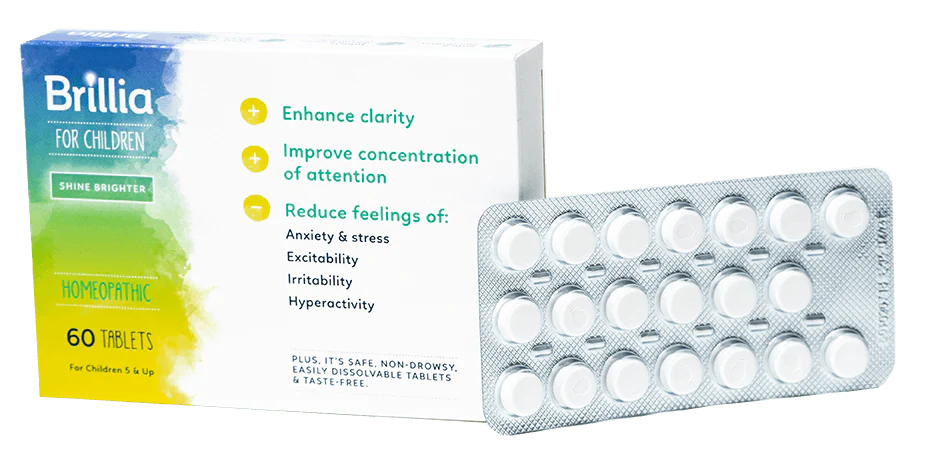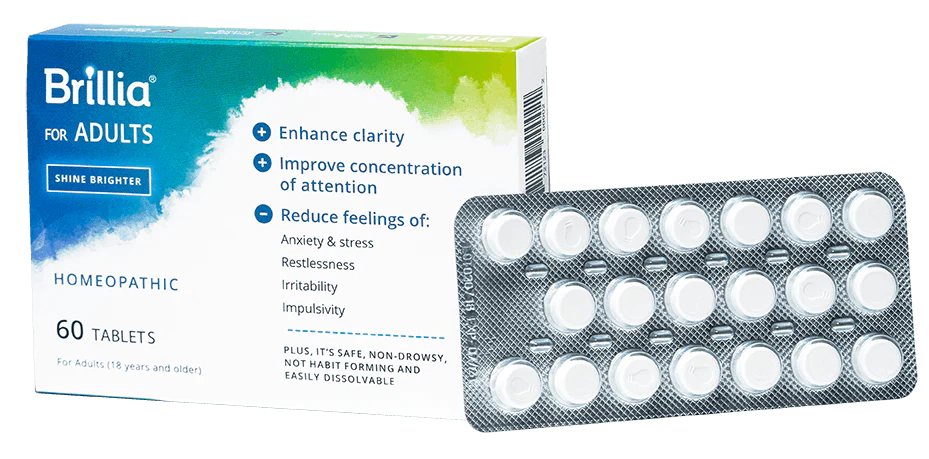As a child, my mother would vex about how my "head was in the clouds" and how I needed to focus. In school, I used to wonder why, when the class read a passage silently, I would be a third of the way through when other kids had long finished and why I never seemed to be able to do things like long division although I could solve challenging algebra problems far above my grade level. I now know that I was a kid with an attention disorder.
It never would have occurred to my salt-of-the-earth parents that I had some sort of disorder that needed to be diagnosed. Problems, yes, and frustrations aplenty, but problems taken in stride. I was a strange and difficult kid, but that was just who I was. That same strange and difficult kid was also extremely creative and original. By the time I was 18, I had owned dozens of pets (including birds, rats, mice and a snake), played several musical instruments (albeit none of them as well as I would have if I had focused on one), and written reams of stories and poetry. Although my inability to attend to details made me hopeless at the "normal" customer service jobs my teenage friends held, I instead ended up creating my own small business teaching beginning piano students.
If I had been born in a different time to a different family, how would my unfocused nature have been viewed? Would I have been diagnosed and given a Ritalin prescription? Would that have made my life easier? Probably. But in the process, what would have been lost?
The Mixed Blessing of ADHD
It was not until recently that I started hearing from people who considered attention deficit/hyperactivity disorder to be not a disorder but more of a personality type — with gifts as well as the familiar frustrations. People with attention disorders tend to be gifted in several areas, including:
- creativity
- exuberance/energy
- emotional expressiveness
- interpersonal intuition
- ecological consciousness
- leadership
It may come as quite a surprise, but many successful entrepreneurs, including Charles Schwab, Ikea founder Ingvar Kamprad, Kinko's founder Paul Orfalea, Virgin founder Sir Richard Branson, Cisco CEO John Chambers and JetBlue founder David Neeleman have ADHD. According to one study by researchers Wiklund et al., people with ADHD are uniquely well-suited to entrepreneurship, but they also excel in other high-energy, creative professions. Highly accomplished people with ADHD include singer Justin Timberlake, celebrity chef Jamie Oliver, Olympic swimmer Michael Phelps and actors Will Smith and Jim Carrey, to name a few.
Harnessing the Gifts of ADHD
Dr. Lara Honos-Webb, the author of The Gift of ADHD, is among the most eloquent proponents of the conclusion that ADHD is not only a set of behavioral challenges but also a set of unique gifts and talents. She believes that characterizing ADHD as a disorder has led to low self-esteem and underachievement because kids with ADHD are told they have a problem rather than a unique set of personality traits that includes strengths as well as difficulties. Instead of viewing ADHD as a disease that needs to be cured, she believes that a focus on maximizing strengths while also addressing weaknesses is the best way to fulfill the potential of people with ADHD.
Supporting Novelty Seeking
ADHD is a neurological condition with genetic components that are just now beginning to be understood. One of the strongest of these is a drive toward novel experiences. Novelty seeking has been known to have a genetic component based on certain types of dopamine receptors, and ADHD includes such dopamine-related genetic variations. This type of trait can be a curse in some situations (such as work involving repetitive tasks), but a gift in others (such as creative projects or complex problem solving using innovative approaches). Kids with ADHD will do well when tasks are novelty-oriented. If your son has ADHD, he will do better in a school that changes activities frequently than in a school that expects him to sit still doing the same thing for long stretches of time. If your daughter likes to come up with her own way of doing things, she will do better with a curriculum that emphasizes project-based learning over following instructions and doing things the "right" way (the teacher's way) day in and day out.
Remember, a difference is not a disorder. This type of genetic profile is associated with, for example, entrepreneurship, a career choice that is neither better nor worse than the choice to be an employee. It’s just different. If our kids are uniquely suited to doing things their own way, we need to advocate for an environment that supports that as well as their novelty-seeking interests outside of school.
Reframing Hyperactivity
One of the "symptoms" of ADHD is hyperactivity. But, should the exuberance and energy of ADHD kids really be classified as a symptom? Hyperactivity is a problem in a traditional classroom, but what about on the soccer field or basketball court? Many ADHD kids are great workers when they have a task at hand, like building a fort or doing community teamwork, such as a beach cleanup. They are often the fastest, most energetic workers, and their enthusiasm can inspire and energize others. ADHD kids will do better in environments that provide outlets for their natural energy.
Shine Brighter
Through some simple modifications, tasks like schoolwork can be made easier for hyperactive kids. One such modification is to use yoga balls instead of traditional chairs. Many of the teachers at my kids' school use these, and it’s a fantastic way to allow kids to channel their need for fidgety motion while staying seated in a traditional classroom setting. (The kids love them, by the way, and there's the side benefit that they have to sit up straight while on the balls; otherwise, they will fall off!) Another classroom/homework option is allowing breaks for movement, such as 20 jumping jacks for every 20 minutes of concentration. Working movement into the daily routine also has the advantage of providing exercise, which has been shown to improve attention, especially if the exercise involves coordination, such as bouncing a ball alternating between the right and left hand.
Hands-On Engagement
ADHD kids tend to do better with hands-on engagement than book-and-paper learning. Science experiments, building/mechanical activities, art projects — any activity that involves hands-on engagement — will help ADHD kid to see that they are smart and capable. Then, when it comes to the difficulty of book-and-paper tasks, rather than thinking that they are "not good at learning" they will understand that they are good at some types of learning while other types are more challenging.
Strengthening a Connection With Nature
Dr. Honos-Webb was one of the early advocates of an emphasis on "ecological consciousness" as an approach to helping kids with attention disorders. Kids with ADHD, she argues, are often especially gifted in ecological consciousness, a type of intelligence exemplified by great naturalists, including Charles Darwin. ADHD kids often have a special connection to nature and animals, and they are driven to spend time exploring the outdoors as well as academic subjects, such as ecology.
Since Dr. Honos-Webb’s initial proposal, much research has supported the myriad health benefits of spending time in nature. A cultural/political advocacy movement called No Child Left Inside has also sprung up around the belief that fundamental aspects of development are stunted if kids do not spend time outdoors. Nurturing the gift of ecological consciousness can build confidence in kids with ADHD. In addition, since this strength is often seen in fields such as forestry and zoology, supporting it could form the foundation for a future career path.
Interpersonal Intuition and Expressiveness
Finally, ADHD kids often have the social gift of interpersonal intuition and emotional expressiveness. These strengths, though, are often countered by ADHD-related weaknesses such as poor or inattentive listening. Activities to support strengths and shore up weaknesses include games such as "listening Bingo," in which a bingo card includes the likes and dislikes of friends (for example, "favorite animal," or "something you hate eating"). Children can only win if they listen and pay attention to what their friends say. If these qualities can be harnessed and developed, they can produce an invaluable strength for functioning well in organizations.
Attention disorders often manifest differently in girls vs. boys, and while girls with ADHD are particularly prone to problematic interpersonal behavior (such as talking all the time), they also can be uniquely gifted in making friends and being fun to be around. ADHD girls may unconsciously harness this gift on their own, with friends who appreciate their exuberant personality stepping in to help with tasks like organization and decision making. (Be on the lookout for this, though, in your own daughter. Using this "method" as a crutch can stunt a girl's development of her own independence in areas of natural weakness.)
Overcoming the Challenges While Supporting the Gifts
To be sure, attention disorders span a spectrum of severity, and some kids need more help than others with typical ADHD difficulties, such as inability to focus, getting bored easily, being disruptive and not listening carefully. The key is to not "throw the baby out with the bath water." Yes, ADHD is a neurological condition fraught with difficulties, but if ADHD is treated as a medical disorder that must be "cured," then what will be lost when the ADHD personality traits are made to disappear? Dr. Honos-Webb argues that ADHD involves many unique traits that can lead to great success. JetBlue founder David Neeleman has said that despite the challenges of ADHD, even if there were a pill he could take to get rid of it he would refuse it because without ADHD he would not be where he is today.
In contrast to the "quick fix" of stimulant medication — which may be necessary in some cases but which psychiatrist Dr. Dale Archer argues should be a "last resort"— the Brillia 5 Pillars Program parallels and supports efforts to strengthen the gifts of ADHD. The program addresses the problems of ADHD through improving nutrition, controlling screen time, making sure the child gets good sleep (a challenge made more difficult by most prescription ADHD medications), and gently reducing anxiety with Brillia tablets. At the same time, the fifth pillar, mindfulness techniques, helps a child to practice focusing while reducing anxiety. The Brillia 5 Pillars program can alleviate many of the difficulties that prevent children with ADHD from thriving without diminishing their gifts — and that really is the goal, isn't it? After all, it’s believed that many great minds, including Thomas Edison, Albert Einstein, Salvador Dali and Winston Churchill, had ADHD. Who knows what our ADHD kids will contribute to the world?







